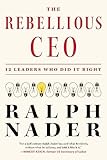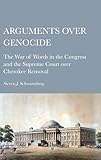When Charlton Heston passed away a few weeks back, I couldn’t help but think of Michael Moore’s egregious ambush of him in Bowling for Columbine
Besides being completely unsuspecting, Heston was also obviously slowed by advanced age and diminished wit. Moore posed as a NRA aficionado and then confronted him asininely, injudiciously exploiting his waning capacity for philosophical discourse.
Trapped and unable to defend himself, Heston patted Moore’s shoulder and trudged pitifully away. Moore may have scored some zingers for gun control, but he also came off looking like a discourteous bully.
I know that as a septuagenarian, Heston was a yahoo who haughtily claimed that firearm control proponents would have to pry his guns from his cold dead hands. And I realize he obtusely stumped for global warming contrarians. In his old age, he may often have been on the wrong side of things. But he deserved better than Moore’s attack to be the last thing we remember of him on the big screen.
In the final measure of things, Heston was not just a simple conservative. His deeds and works spoke otherwise and, perhaps more than even he himself even realized, he could be inspiringly progressive.
For the “I Like Ike” generation, Heston was Moses, Ben-Hur and El Cid. Giants of historical legend and social tradition. He visually codified conventional courage, greatness and nobility. But (though many of his obituaries failed to mention it) there was a whole other side to his career. My generation recognized Heston in all his classical icon roles, but what he inspired us most with was his equally formidable 1970s sci-fi anti-hero legacy.
In perhaps the greatest and most evocative individual trifecta of radicalism in motion picture history, Heston challenged us politically, racially and environmentally. In 1968, he played Astronaut Taylor in Planet of the Apes. The movie began with his Hamlet-like monologue: “Does man, that marvel of the universe, that glory of paradox—who sent me to the stars—still make war against his brother, keep his neighbor’s children starving?” His answer comes at the end of the film perhaps as astoundingly and memorably as any film sequence ever recorded. Riding on horseback away from the “Planet of the Apes,” Astronaut Taylor finds the Statue of Liberty shorn from its base, its torso half-buried on a beach. “Oh my god,” he says. “We finally really did it.” It’s a stark warning, an omen and a terrifying prophecy.
In 1971, Heston played Robert Neville, the last man on earth in Omega Man. The film warns of the dangers of biological and nuclear war, but the most subversive aspect of the narrative is Neville’s interracial relationship with the only adult female survivor, Lisa, a tough-talking a black woman played by Rosalind Cash (who he hand-picked for the role). In a year that saw race riots in Brooklyn, a Black Panther attack of a police station in San Francisco, racially-motivated murders in Mississipi and racially-motivated firebombings in North Carolina, watching Hollywood’s iconographic representation of Moses, Ben-Hur and El Cid become smitten with, kiss and eventually make love to a black woman was radical and unsettling.
Though the first glimpse that many men of the era had of a naked woman may been from tribal Africa spreads in National Geographic, to see a black woman nude, afro-ed and black-sploitation statuesque on the same screen with God’s right-hand man was a shock for whites and blacks alike. And though it may not seem like a big deal now, few Tinseltown A-listers would have taken such a role at the time.
In 1973, Heston followed up with a stark portrayal of a NYC detective named Robert Thorn in Soylent Green. The world was portrayed as a post-apocalyptic dystopia where women are referred to as “furniture,” people are starving in the streets and the political-industrial complex sponsors voluntary suicide. Thorn inadvertently discovers that the new, life-sustaining “miracle food of high energy plankton, gathered from the oceans of the world” is actually dead humans harvested from state-sanctioned suicide facilities, then recycled and processed into “Soylent Green”–an endlessly renewable food source. The final scene, though perhaps less visually astonishing as that of Planet of the Apes, is equally chilling, ominous and prescient.
For many Gen Xers, Heston put science fiction, social accountability, environmentalism and racial diversity on the map. Our formative years were filled with premieres and matinees of his sci-fi staples because we only had four or five TV channels watch and movies like Planet of the Apes, Omega Man and Soylent Green played over and over again.
Heston was a towering figure, whose very stature legitimized new political stances and cultural concerns. Even in 1990, when he stood up on Saturday Night Live and personally read a 1978 letter he wrote berating the show for being repulsive, “violent, gut-churning nausea,” he had so much profound screen “cred” I couldn’t help but respect his opinion even though I wildly disagreed with him. He’d done too much to shape my perspective on humanity and our prospects for the future.
Sure, I ignored Heston’s conservative activism for the last decade or so, but he was never far from my mind. The characters he played and the movies he was in introduced haunting implications. He was more rich and complex than the turns he took in his declining years; even as his political stances became sedimentary and outdated, his sci-fi legacy remained as relevant as ever.
Now, as oil prices fly through the roof and we still wage war against our brothers, deprive our neighbor’s children of food and stand idly by while genocides are still conducted in different places around the globe, I can’t help but wonder if we’ll really finally do it. As dead zones increase in our oceans and bees disappear from our food chain, I wonder when we’ll be forced to develop our own Soylent Green and what ingredients it’ll be comprised of. As thousands of animal and plant species disappear each passing decade and the earth’s ice caps melt and the holes in the ozone grow I think of Edgar G. Robinson’s character’s ongoing claim to Heston’s Thorn in Soylent Green: “There was a world once,” he says. “I was there. I can prove it.”
And I am harked back to Rosalind Cash’s shrugging observation to Heston in Omega Man: “Sorry the world didn’t make it.”
Will their words be my words as a grandparent or great-grandparent?
In the 1950s, Heston affirmed our beliefs by bolstering them with a face for our classical heroes. In the 1970s, he challenged us with new expressions and a new kind of hero, inspiring a whole generation to strive towards reform and circumvent our approaching perils.
Flaws and all, Heston was legend and he remains a cultural force we’d be remiss to forget or ever ignore.










